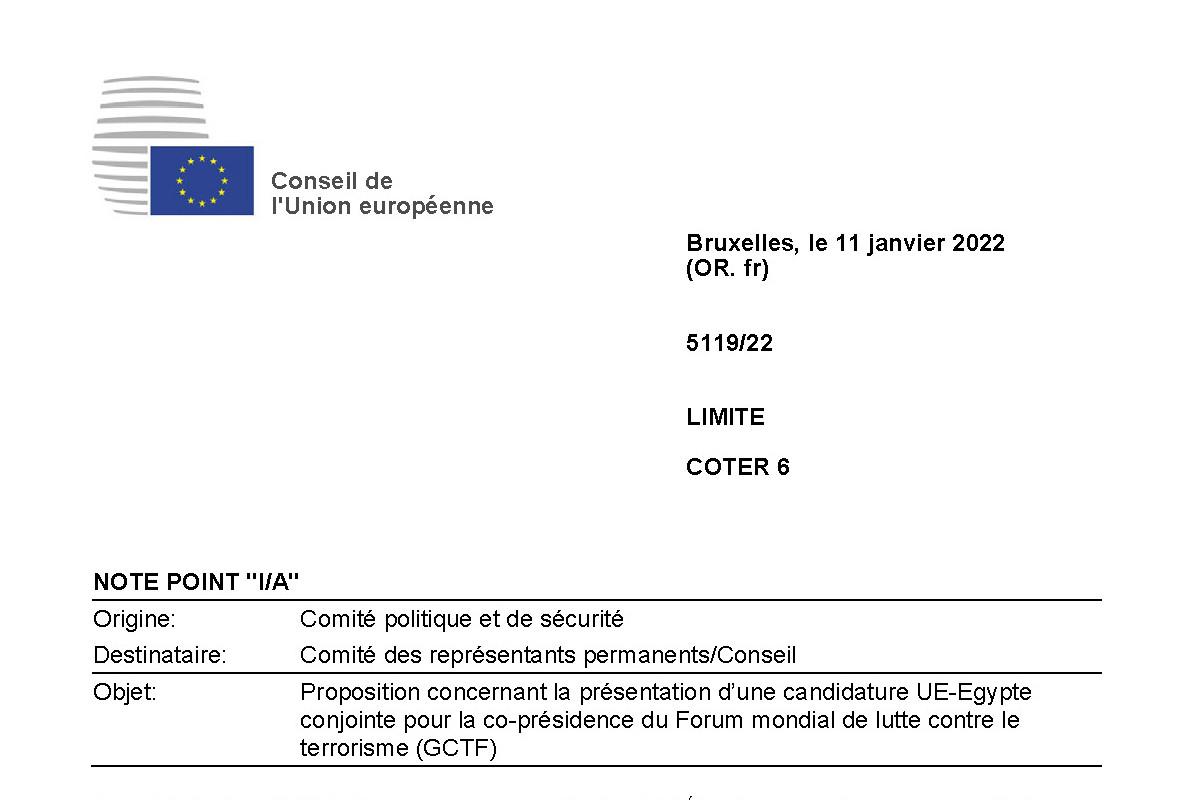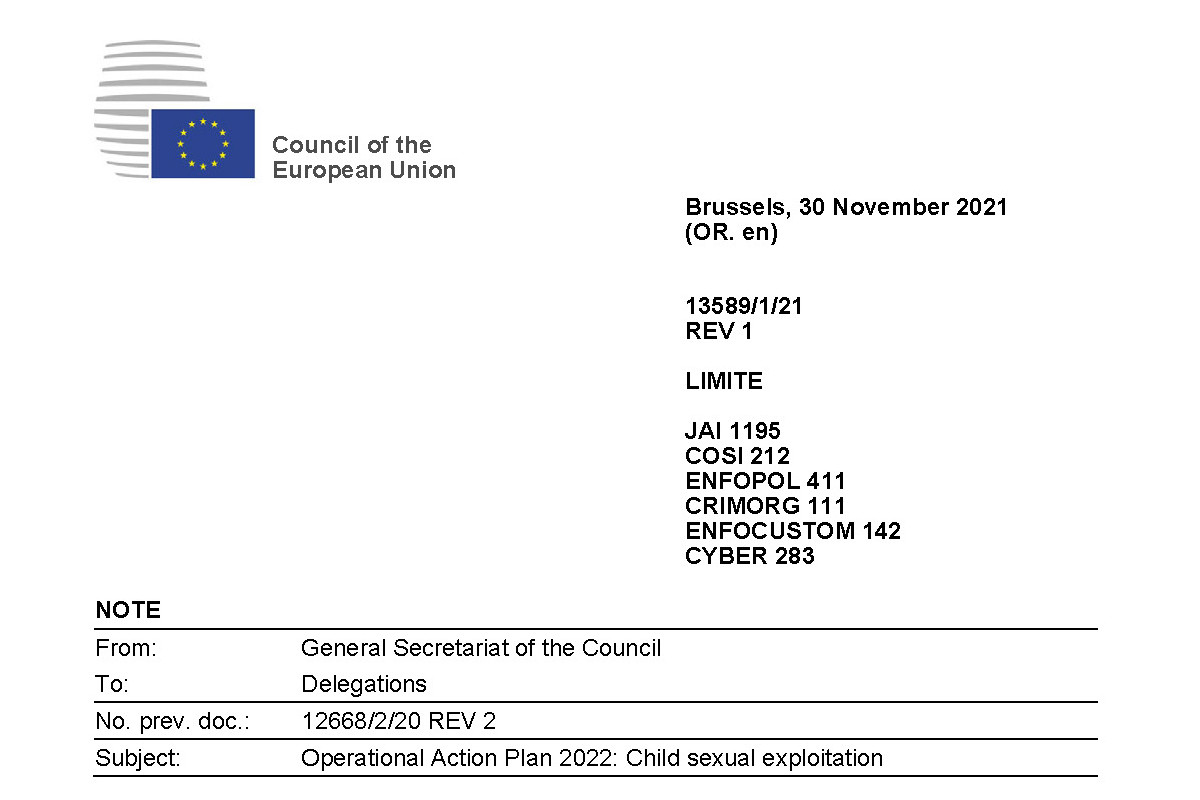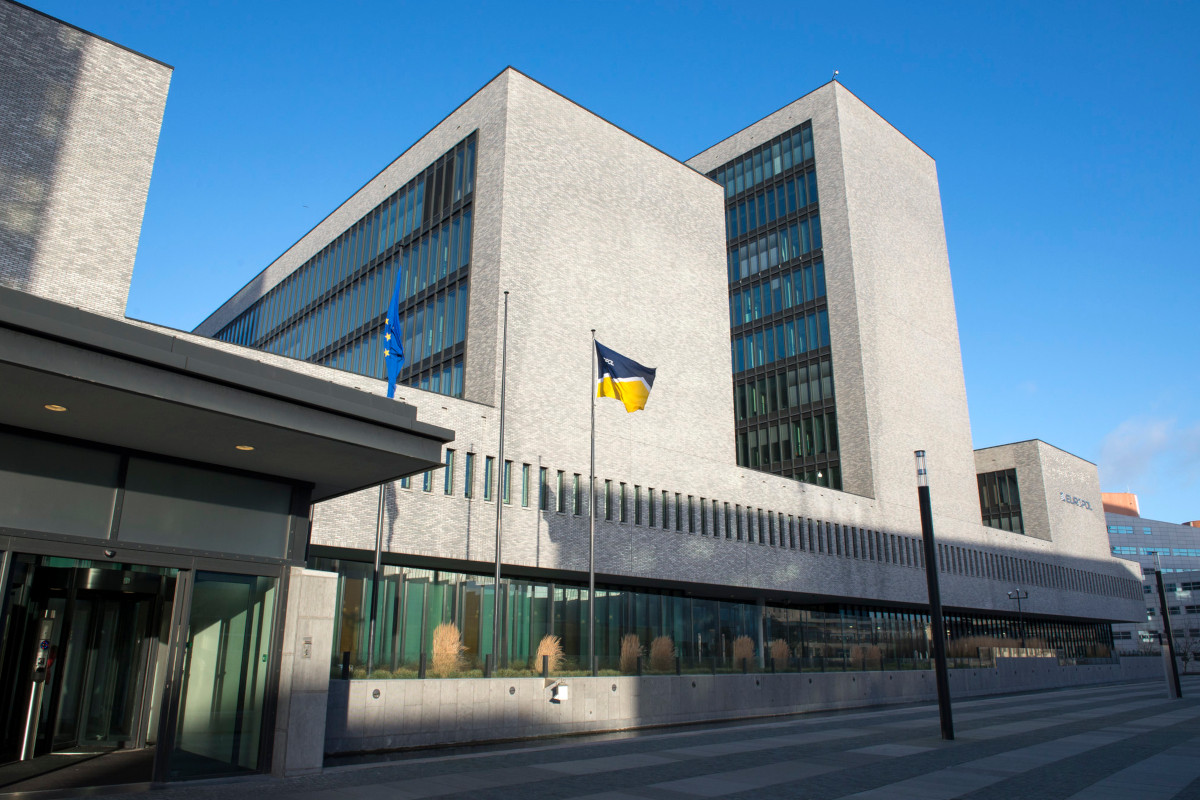EU seeks global counter-terrorism partnership with Egypt
Topic
Country/Region
20 January 2022
The EU is to put itself forward, alongside Egypt, for the joint presidency of the Global Counter-Terrorism Forum, "an informal, apolitical, multilateral counterterrorism (CT) platform that contributes to the international architecture for addressing terrorism." The idea was first suggested by the European External Action Service and was recently approved by the Council despite Egypt's appalling record of human rights abuses in the name of counter-terrorism.
Support our work: become a Friend of Statewatch from as little as £1/€1 per month.

Proposition concernant la présentation d’une candidature UE-Egypte
conjointe pour la co-présidence du Forum mondial de lutte contre le
terrorisme (GCTF) (Council doc. 5119/22, LIMITE, 11 January 2022, pdf):
"L'intention de l'UE de proposer une candidature UE-Égypte conjointe pour la co-présidence du Forum mondial de lutte contre le terrorisme (GCTF) a été présentée par le Service européen pour l'action extérieure (SEAE) lors des réunions d'octobre et de novembre 2021 du groupe de travail sur le terrorisme (aspects internationaux, COTER). Les délégations ont été invitées à faire part de leurs observations ou suggestions pour le 7 janvier 2022."
The proposal was approved by the EU's Agriculture and Fisheries Council on 17 January (links to pdfs).
See: EU plans joint bid with Egypt to lead global counter-terrorism body (Middle East Eye, link)
If the bid for the presidency of the Global Counter-Terrorism Forum is succesful, Egypt will find itself at the head of an a body that describes itself as providing "a valued and practical platform for CT officials and practitioners around the world to share expertise and strategies and to develop widely applicable good practices and tools."
It is not clear what good practices the Egyptian authorities might have to offer. In February last year UN human rights experts said:
"We are deeply disturbed about counter-terrorism law, its definitions, misuse and the practice by the Egyptian authorities, and in particular the misuse of listing procedures at national level, to attack individuals engaged in human rights work...
The continued misuse of counter-terrorism powers is not consistent with the State’s international law obligations and undermines broader international efforts to prevent terrorism by misusing such powers domestically."
The EU has problems of its own in this field - a report published in November last year by the Fundamental Rights Agency (FRA) (pdf) highlighted that application of the 2017 Terrorism Directive lacks legal clarity, may criminalise entirely legal activities and that member states do not necessarily have sufficient safeguards in place around investigative powers, amongst other things.
The measures have also led to discrimination against minority groups, in particular Muslims; and anti-terrorism powers have been incorrectly used by member states against "non-violent anarchist or separatist movements, public protests of various types, and non-governmental organisations or non-EU nationals," the FRA found.
Our work is only possible with your support.
Become a Friend of Statewatch from as little as £1/€1 per month.
Spotted an error? If you've spotted a problem with this page, just click once to let us know.

